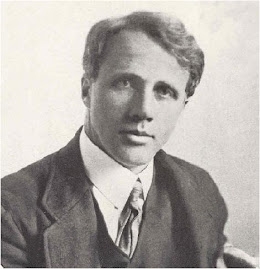
"Spring Pools"
These pools that, though in forests, still reflect
These pools that, though in forests, still reflect
The total sky almost without defect,
And like the flowers beside them, chill and shiver,
Will like the flowers beside them soon be gone,
And yet not out by any brook or river,
But up by roots to bring dark foliage on.
The trees that have it in their pent-up buds
To darken nature and be summer woods --
Let them think twice before they use their powers
To blot out and drink up and sweep away
These flowery waters and these watery flowers
From snow that melted only yesterday.
Humans are romantic, and tend to identify themselves with nature. In poetry, nature and seasons are good ways to express one’s emotions.
"Spring Pools" by Robert Frost talks about the poet’s feelings for the spring season, which tends to pass way too quickly (line 12). Frost relates springtime with happiness and opportunity for new beginnings.
For example, the pools of water formed by melted snow from the passing winter and all the flowers around it indicate it is springtime (lines 11& 12). The snow that melted recently is considered as the better aspect of life, leaving behind the end of a cold, gloomy winter and entering the beginning of a bright, beautiful spring. We can relate this to life itself, because humans always want to leave the bad behind and start fresh and new. When Frost writes to let the "summer woods think twice before they use their powers" (line 8 & 9), he is advising the woods to think twice about absorbing the water, because this is a sign that the summer will end. Frost knows nature cannot stop; he just wants it to slow its course. This is obviously personification, which appears more than once throughout the poem, since woods cannot think nor stop it’s course. This is clearly a situation in which humanity clings to emotions and opportunity. He wishes to be happy as long as he can.
For more information on this poem, you may visit the following link:
http://www.americanpoems.com/poets/robertfrost/12123/comments











